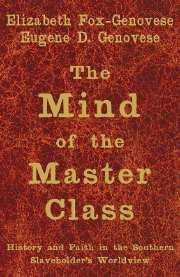Book contents
- Frontmatter
- Contents
- Preface
- List of Abbreviations
- Prologue
- PART ONE CRADLED IN THE STORMS OF REVOLUTION
- PART TWO THE INESCAPABLE PAST
- PART THREE ANCIENT LEGACIES, MEDIEVAL SENSIBILITY, MODERN MEN
- PART FOUR A CHRISTIAN PEOPLE DEFEND THE FAITH
- PART FIVE AT THE RUBICON
- Epilogue: King Solomon's Dilemma
- Supplementary References
- Index
Epilogue: King Solomon's Dilemma
Published online by Cambridge University Press: 05 June 2012
- Frontmatter
- Contents
- Preface
- List of Abbreviations
- Prologue
- PART ONE CRADLED IN THE STORMS OF REVOLUTION
- PART TWO THE INESCAPABLE PAST
- PART THREE ANCIENT LEGACIES, MEDIEVAL SENSIBILITY, MODERN MEN
- PART FOUR A CHRISTIAN PEOPLE DEFEND THE FAITH
- PART FIVE AT THE RUBICON
- Epilogue: King Solomon's Dilemma
- Supplementary References
- Index
Summary
God hath numbered thy kingdom and finished it … Thou art weighed in the balances, and art found wanting.
—Daniel, 5:26Think too how difficult it would be, even if you were fighting feeble opponents, to preserve the purity of your religion, and how you will be forced to transgress the very laws which furnish your chief hope of making God your ally, and so will alienate Him. … But if in the war you transgress your ancestral Law, I don't see what you have left to fight for, since your one desire is that none of your ancestral customs should be broken. How then will you be able to call the Deity to your aid, if you deliberately deny Him the service that is His due?
—King Agrippa II, according to JosephusWith the outbreak of the War, white Southerners staked their all on the consolidation of their slaveholding society into an independent nation. The slaveholding states had flourished within the Union, and, when eleven seceded, four chose to remain. Of the Southerners who favored secession, few seriously underestimated the magnitude of the step they were taking, although opinions varied on their prospects. For the great majority, their vision of the best possible slaveholding society included state rights – an attachment to the state as their first and most enduring home place. In this inclination, they followed the sentiments of their beloved Roman republicans, who, like Cicero, wrote eloquently about life on one's own rural estate.
- Type
- Chapter
- Information
- The Mind of the Master ClassHistory and Faith in the Southern Slaveholders' Worldview, pp. 711 - 718Publisher: Cambridge University PressPrint publication year: 2005



